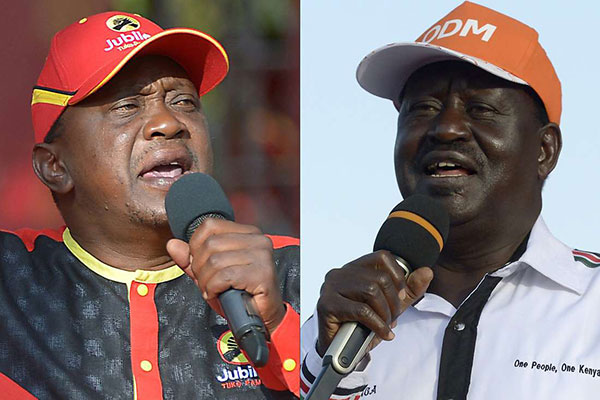Supporters of Raila Odinga (and others shocked by the victory of the president Uhuru Kenyatta) are undergoing a range of emotions, including shock, sadness, anger, confusion, anxiety, and fear. Many supporters of Raila might experience recurrences of these emotions.These feelings are all responses to loss, something that we experience not just when a loved one dies, but also in matters personal, professional, and political. And with loss comes grief. The same feelings are being felt at various levels including those who contested for governor, MP, Senator, MCA and their supporters.
Some of those grieving might be wondering exactly what “stage of grief” they’re at right now, and whether that means they’re closer to feeling better.
SEE: IEBC set to declare Uhuru Kenyatta winner of Kenya elections
As it turns out, thinking of grief as a five-stage process is inaccurate, but the stages included in that concept — denial, anger, bargaining, depression, and acceptance — are indeed valid components of coping with loss. And understanding this grieving process can help people move on.
Recovering from any loss is not necessarily easy and straightforward, and while some may feel ready to get back to work the next day, others may need more time (something that applies to any sort of grief, not just a political version).
First, it’s important to accept that the mental and physical effects that people feel after political or emotional social moments are certainly real. That’s why researchers think watching World Cup soccer is associated with a significant uptick in heart attacks (for those that argue that people shouldn’t feel “grief” after election, I’d argue that even though the World Cup is far more fun, elections do have greater relevance to our lives).
After accepting that there is a real reason to grieve, psychologists offer a variety of tips for moving on.
Come to terms
Grief counselor R. Benyamin Cirlin told Marisa Kabas of Fusion that a series of three tasks could help: “coming to terms with reality,” understanding and accepting the state of things; coping with feelings, understanding specifically what made you feel angry or upset (maybe you or your friends belong to a group you fear may be discriminated against); and finally, figuring out how this event changed you as you think about what’s important to you as you move forward.
As my colleague Rafi Letzter has written, it’s important to take care of your mental health, especially while first trying to process a loss.
And as psychologist Mary Alvord told USA Today, “disappointment can motivate us to action – ideally in a positive way.”
Building resilience
People who have built up the psychological trait of resilience are quicker to bounce back from challenge or loss. They’re able to cope with stress or tough situations that others succumb to, as psychologist Maria Konnikova has explained in the New Yorker. This process of accepting grief and then figuring out how to move on can help build this resilience.
As Konigsberg wrote in her book, “perhaps just the knowledge that our survival instinct is strong, and that a great many have not only endured terrible losses but have also thrived, can be a source of hope.” And that’s relevant to anyone coping with grief, whether it’s from the loss of a friend or the loss of an election.













Leave a comment